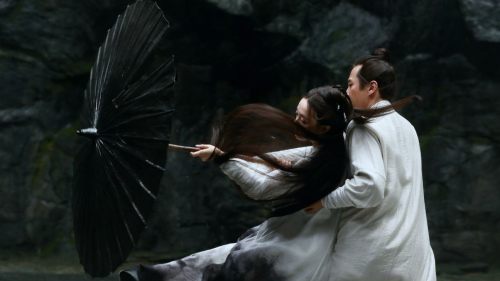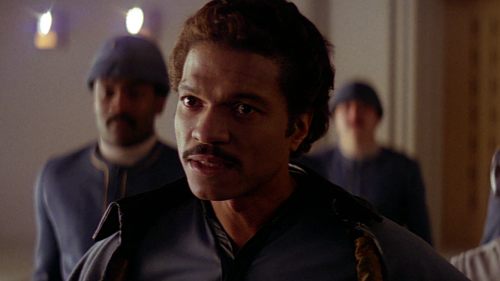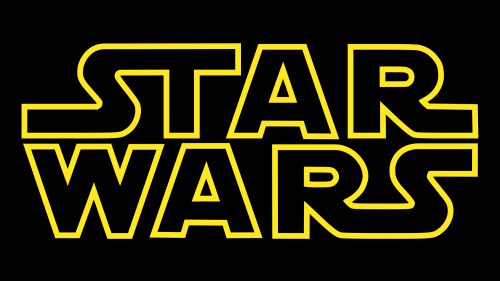Let’s Talk About SOLO’s Darkest, Most Disturbing Twist
WARNING: Spoilers ahead for Solo: A Star Wars Story.
L3-37 is one of the best things about Solo: A Star Wars Story. Acting as Lando’s co-pilot and ambiguously-maybe-at-some-point romantic partner, Phoebe Waller-Bridge’s droid character is sharp, funny, and smart. Every time she’s onscreen, the movie’s better for it, whether she’s chatting with Qi’ra, quipping while performing heist-crucial tasks, or gleefully leading a droid rebellion on Kessel.
Only, right as she’s self-actualizing the shit out of that rebellion, L3 is gunned down and ripped in half, dying in Lando’s arms. And if that wasn’t bad enough, her brain is subsequently uploaded into the Millennium Falcon’s computer, for the sole purpose of enabling a faster route through the Kessel Run.
This storytelling decision - made purely for plot reasons, with no thought to thematic or character consequences - is one of the darkest, most disturbing things to happen in the Star Wars universe.
Imagine, if you will, that you’re a droid. You’ve got arms, and legs, and senses; a personality; a drive to do right by yourself and the people in your life. You die...and then your brain is unceremoniously brought back online, only completely outside your body, trapped inside a spaceship’s computer, made to serve a single navigational purpose. There you will stay, for the rest of the ship’s life. Like the mum-monkey in Black Mirror’s “Black Museum,” your communication is limited to the outputs of the navigation screen - and realistically, given your earlier lust for life, you will probably hate it.
Clearly, this re-informs every bit of Millennium Falcon-related action for the entirety of the Star Wars saga. For one thing, it’s arguable that that ship truly belongs with Lando, rather than Han, given that its computer was Lando’s trusted friend and colleague. Maybe Han kept patching the ship up because he felt guilty. All of Han’s “car talk” to the ship takes on a creepy undertone when you realise he’s talking to the disembodied brain of a sentient droid. The navicomputer suggesting Bespin in The Empire Strikes Back suddenly becomes an expression of the L3's desire to return to Lando. Return of the Jedi’s scenes of Lando flying the ship suddenly become weirdly bittersweet. The years the Falcon spent languishing in that junkyard in The Force Awakens? A fine way for a droid to lose her mind.
Every time the Falcon gets scuffed or crashed into things, imagine that plucky droid wincing in pain.
Every time the Falcon referred to as “garbage,” imagine it as a personal insult.
Every time the Falcon refuses to comply with Han’s inputs, imagine L3-37 consciously refusing to carry out his orders - and then buckling under torture when Han and Chewie get their tools out.
Even purely within the context of Solo, L3’s death is a cruel representation of how it treats its female characters. Val (Thandie Newton) dies to bring Beckett and Han closer together. Qi’ra (Emilia Clarke) has more depth and agency, but still acts, narratively speaking, as a motivator for Han. And L3, bless her, dies so that she can literally be cut up and used to help the male heroes fly their space plane better (or worse: to justify the film's torturous explanation of the whole "12 parsecs" business). That’s two out of Solo’s three significant female characters “fridged,” seemingly without any self-awareness. This in a movie that’s so self-aware it does a winking nod to “I love you / I know,” for God’s sake.
And yes, this renders references to the Falcon as “she” or “her” unpleasantly literal. The Falcon is, indeed, female - and utterly incapable of expressing her wants or needs. Charming.
L3-37’s fate also underscores a double standard omnipresent in Star Wars, regarding how it treats its droids. On one hand, we’ve been meant to empathise with droids as characters since 1977. They have personalities, memories, unique voices, and possibly even souls. Lando certainly treats L3 as if she’s a person; she even gets an emotional death scene. But on the other hand, droids are constantly treated by these movies as if they’re property, and expendable property at that. The line between “friendly droid” and “mindless automaton” in these movies has been blurry at best. But here, L3’s protest against droid enslavement is one of the central pillars of her character, and yet the text of the movie seems to side with Clint Howard and his underground Robot Wars attraction. Droids are things, not people, confirms Solo. They don’t have rights.
Solo expects us to get behind droids shedding their restraining bolts to rise up against their masters, then turns around and transforms arguably the saga’s most human droid character into the fucking ship’s computer, voiceless and enslaved. It’s a thoughtless decision on the part of the screenwriters - maybe they thought it was just a cheeky, fun nod to the Falcon’s temperamental nature in the original trilogy? - and it gets more disturbing the more you think about it. That it serves to highlight one of the saga’s most inconsistent positions on the rights of sentient beings is just the distasteful cherry on top.
Now, L3’s status at the end of Solo is debatable. It could be argued that only her navigational subroutines were uploaded to the computer. But the way Lando’s dialogue puts it - “she’s part of the ship now,” to paraphrase, and referring to L3 as making decisions inside the ship - we’re clearly meant to read the situation as her entire being having been placed in there. If we accept L3’s integration with the Falcon’s computer as Lucasfilm Story Group-approved canon, as it most certainly is, there’s a lot to reconcile.
The Millennium Falcon has been a symbol of joy, adventure, and excitement throughout all the Star Wars movies. But in the wake of Solo, its purity is tarnished. It’s not fun anymore; it’s a horrifying existential nightmare.
At least L3 has porgs to keep her company now.



